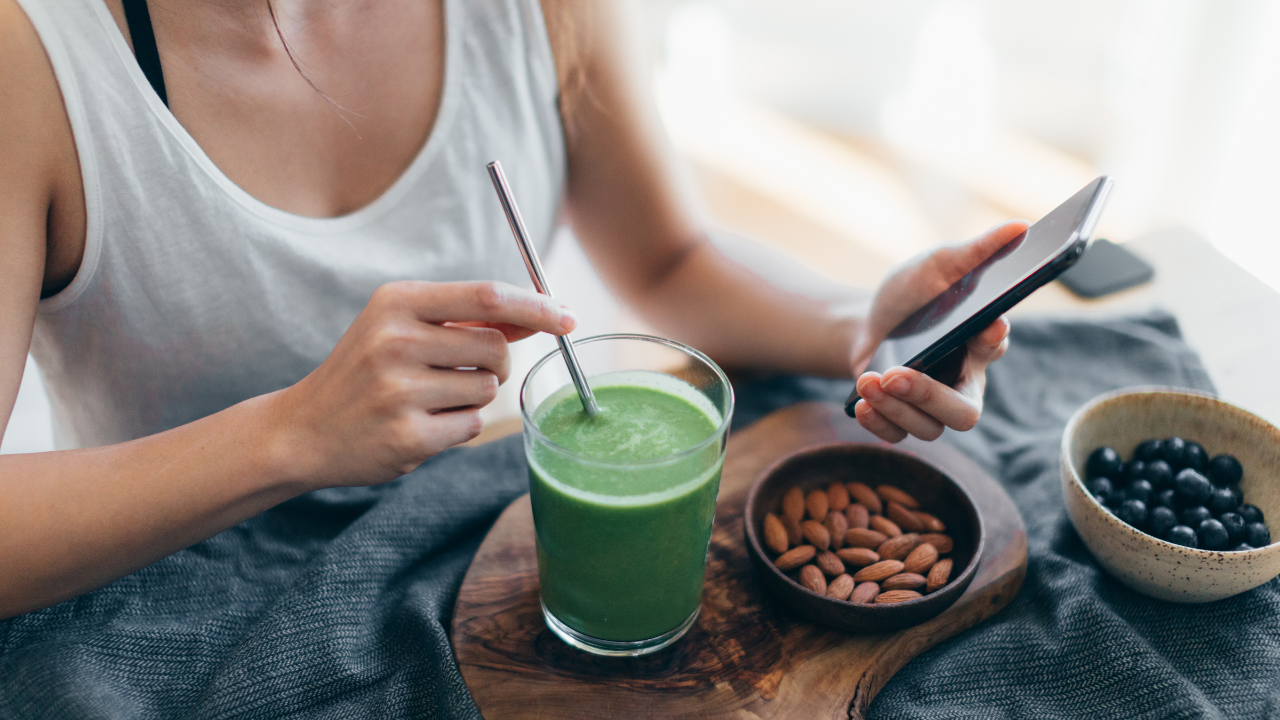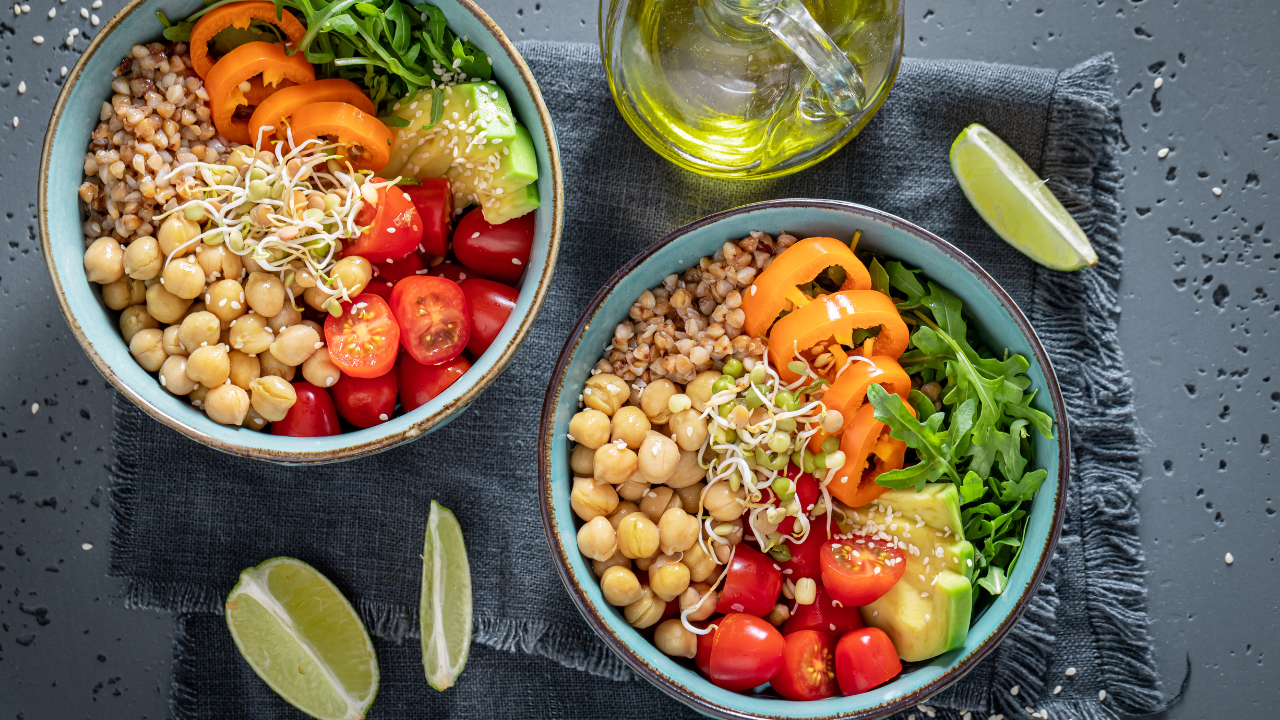Do You Really Need an Anti-Inflammatory Diet?
The anti-inflammatory diet has become more and more trendy, especially with the rise of wellness culture. The are many variations of the anti-inflammatory diet, but the common denominator typically involves removing “processed” items or foods that are otherwise deemed as “inflammatory”.
But is there any truth to the anti-inflammatory diet? Or is this approach just doing more harm than good?
If you’re new here, hello and welcome! My name is Hannah and I am a non-diet dietitian here to help you improve your relationship with your food and finally find food freedom.
Table to contents
What is inflammation?
Although it has become an over-used buzzword, inflammation is indeed a real process that happens in the body. Inflammation is a natural response to the body being hurt or irritated.
Inflammation can be acute or chronic. Acute inflammation happens in the moment. For example, if you nick your finger with a knife while chopping some veggies, your body will enact an inflammatory response to promote healing. Once the injury is healed, inflammation will subside. This is a perfectly normal and helpful response.
Chronic inflammation is typically what the anti-inflammatory diet is claiming to cure. Chronic inflammation is more of a “low grade” response that happens over a longer period of time. Chronic inflammation can play a role in the development of chronic diseases and disorders.
How the anti-inflammatory diet can cause inflammation
Following a strict anti-inflammatory diet that involves cutting out foods can cause a lot of stress. And stress is a risk factor for chronic inflammation. In this way, the anti-inflammatory diet may actually be doing the opposite of what it claims to do.
The general proponents of the anti-inflammatory diet, such as eating more fruits and vegetables and omega-3 fats, is actually great advice. However, when this approach becomes restrictive and leads to you feeling guilty for eating foods not on your anti-inflammatory meal plan, it may actually be promoting inflammation rather than reducing it.
@dietitianhannah Replying to @pegbundy82 it’s pretty tough for people to eat “healthy” and “clean” when they don’t have access to food #socialdeterminantsofhealth #dietculture #wellnessculture #dietitian #dietitiansoftiktok #dietitianhannah ♬ original sound - Dietitian Hannah
Are there any foods that cause inflammation?
If someone ever says that a food causes inflammation, they better be prepared to explain which inflammatory markers are involved and how much of the food is needed to cause the response. We also need to consider the individuality of human bodies. The amount of an ingredient that is inflammatory for one person may have no effect on a different person.
We cannot simply say that a food directly causes inflammation. This often results in binary thinking about food and leads to us viewing foods as “good” or “bad”. Our body’s response to food is much more complex than that.
What is more important to consider is your diet as a whole, rather than nit-picking individual foods. If you eat gobs and gobs of sugar, sure, you may be increasing inflammation by causing continuously elevated blood sugars and insulin. But this does not mean that sugar is “bad” or “inflammatory”. I would argue that any food or ingredient could become inflammatory at a certain dose.
TLDR: unless you are allergic to an ingredient, it likely will not cause an immune response on its own.
Which foods are anti-inflammatory?
Similar to how foods are not directly inflammatory, there are not any foods on their own that will reduce all inflammation. Again, some inflammation is a good thing and it keeps our body safe!
That said, there are lots of different foods that may offer anti-inflammatory properties.
Fruits and vegetables
Berries, dark leafy greens, and cruciferous vegetables are especially high in antioxidants.
Nuts and seeds
Choose whichever ones you like! Nuts and seeds will offer omega-3 fatty acids along with fiber.
Fatty fish
Salmon, tuna, sardines, mackerel, and herring are also rich in omega-3 fats.
Olive oil
Extra virgin live oil has several antioxidant properties.
How to reduce inflammation with a non-diet approach
Avoid restrictive diets
Restrictive diets (including the wellness culture version of the anti-inflammatory diet) will likely just cause more stress to the body. And as mentioned, stress is a risk factor for chronic inflammation.
A concept known as “nutrition by addition” is a great one to implement for an anti-inflammatory approach. Rather than cutting foods out, consider what you can add to your plate. Use some of the recommendations below for inspo!
Remember that rest is productive
While exercise is generally health-promoting, more is not always better. Doing HIIT workouts 7 days each week is likely to cause even more inflammation.
Taking rest days is essential, even for the most elite exercisers. Not getting enough rest can increase the stress response in the body.
Related: Is Cycle Syncing Legit or Just Trendy Diet Culture?
Incorporate fruits and vegetables
Cliche for me to say as a dietitian, I know. But it is true that eating a variety of produce will help to provide your body with phytochemicals that offer antioxidant and anti-inflammatory properties.
Feel free to choose fresh, frozen, or canned produce. And it’s also okay to add oils, dressings, seasonings, and sauces to your fruits and veggies. You do not need to be munching down on raw broccoli to get the beneficial nutrients (unless you’re into that kind of thing).
Related: How to Incorporate More Fruits and Vegetables with Intuitive Eating
Prioritize omega-3 fats
Omega-3 fatty acids can provide anti-inflammatory properties. Foods high in omega-3 fatty acids include nuts, seeds, olive oil, and fatty fish.
Related: Are Seed Oils Toxic?
Keep your gut happy
Eating a variety of foods (and eating enough!) will help to fuel the bacteria in your gut. Our gut bacteria interacts with the body’s immune system.
Looking at specifics, many claim that diary is inflammatory. If you have lactose intolerance or a daily allergy, consuming diary can cause issues. But for those without these conditions, diary can actually be anti-inflammatory. Fermented diary products, specifically, can be great for your gut.
Another commonly demonized ingredient is gluten. Again, if you have celiac disease or a gluten intolerance, it will be best to avoid gluten. But for the rest of us, foods such as whole grains (some of which containing gluten) have fiber and can promote a happy gut.
Related: Are You Eating Enough Fiber?
Eat in a way that stabilizes blood sugars
Chronically elevated blood glucose levels can increase an inflammatory response in the body. Now, it is totally normal for your blood sugars to rise and fall. This means that your body is working properly!
Eating consistently and eating balanced meals and snacks with a variety of proteins, fats, and fiber can help promote stable blood sugars.
Those with hyperglycemia (high blood sugars), diabetes, and insulin resistance may benefit from paying extra attention to their blood sugars. Having blood sugars that are too high for too long can cause an inflammatory response in the body. However, these chronically elevated blood sugars are typically not simply a result of eating “too much” sugar. There are many factors that can increase blood sugars and cause conditions such as diabetes. Sugar is not solely to blame and cutting out sugar likely won’t be the solution.
Related: Managing Your Diabetes with Intuitive Eating
Bottom line
Unfortunately, the word “inflammation” has become a synonym to “toxic” thanks to wellness culture as a way to promote a restrictive anti-inflammatory diet.
While it is wise to do our best to prevent chronic inflammation, this does not need to involve following a strict diet or meal plan. Consider what you can add to your plate rather than trying to cut a plethora of foods out.
Looking for more support? We’d love to help inside The Nutrition Reboot, my signature diet-ditching membership.
Did you find this post helpful? Let me know your thoughts in the comments below!
Learn more
Featured podcast episodes
Featured videos
More on the blog
Disclaimer: this post is for informational and educational purposes only and is not a substitute for professional medical advice.


































